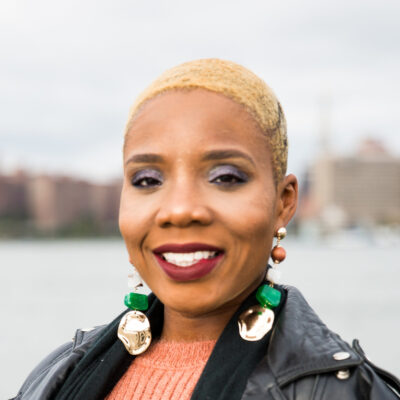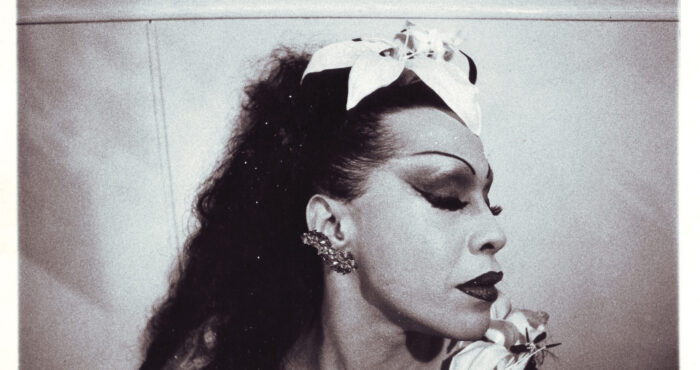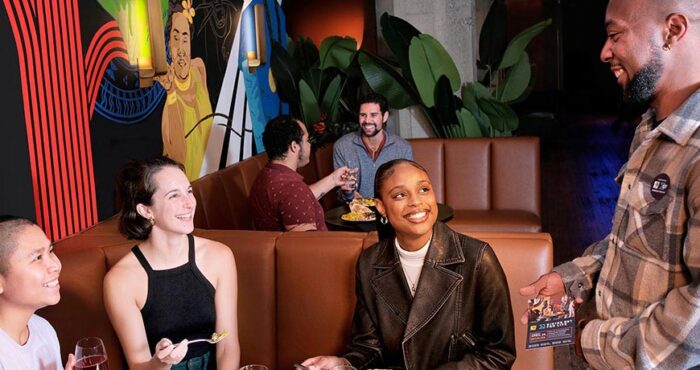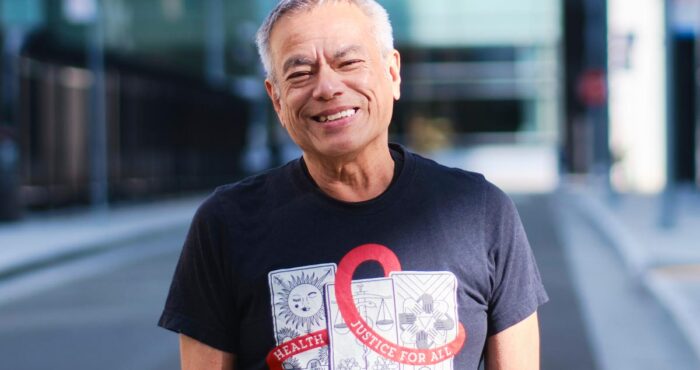Pronouns: Why They Matter
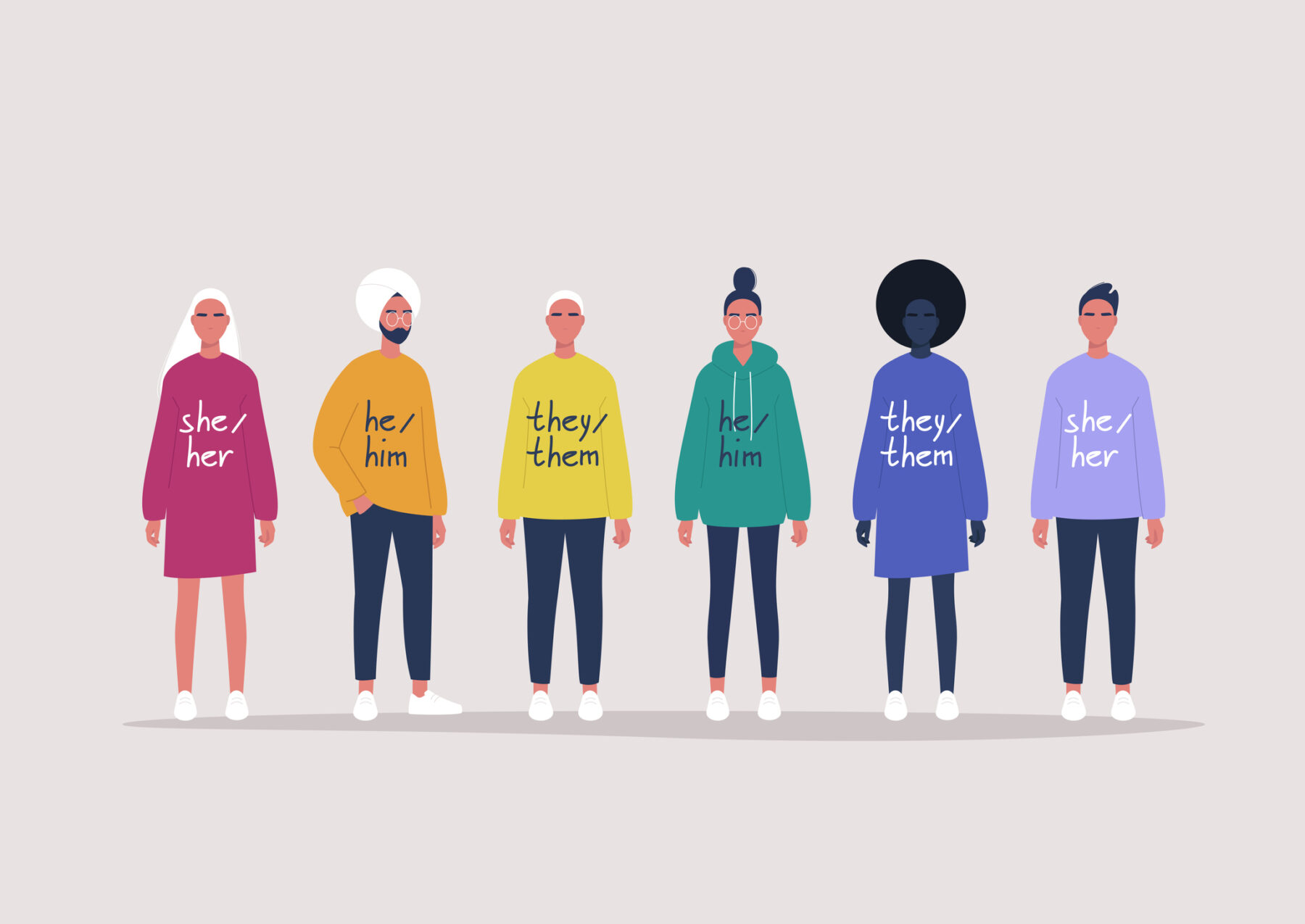
Remember the first time you heard someone introduce themselves with their pronouns or saw an email signature that included pronouns? Maybe you weren’t sure what was going on there, but thankfully, the practice is becoming more common as pronouns like she, he, they, xe, ze, per, etc. represent part of our gender identity.
In its most basic form, a pronoun is another way of addressing a person instead of using their name. Just as it’s important to use a person’s name correctly, it’s important to use the right pronouns when referring to that person.
Language around pronouns is constantly growing. People, pronouns, and gender are fluid meaning they exist on a spectrum. As language evolves, so does our understanding of our identities.
In this article you will learn:
-Why using the right pronouns is important
-How to use them effectively
Why using the right pronouns important
Pronouns matter. They tie in to how we feel, how we view ourselves, and how we want to be viewed. Yindi Pei (they/them/theirs) is non-binary and focuses on community organizing. Their work educates people about trans, gender non-conforming, and non-binary people.
“[They/them/theirs is] validation of the gender that I am, that I feel to be. And it’s such a strong aspect of who I am, that when anyone uses a pronoun, that’s not them to refer to me, it causes a little bit of distress and a little bit of like, not feeling like they’re directly addressing me,” said Pei.
Dr. Jerrica Kirkley (she/her/hers) is a transgender medical physician, Chief Operating Officer, and co-founder of Plume, a free digital medical platform that offers gender-affirming hormone therapy. She believes that misgendering a person can affect them negatively.
“I will say that as a trans person [sometimes] we get misgendered and, you know, sometimes dead name[d], but especially misgendered just by anybody that I come across. Whether that’s somebody walking down the street or walking into a clinic or a bank or a grocery store,” said Kirkley. “[It] is incredibly degrading and it wears on you after happening over and over and over again. So while it seems perhaps small or just one piece of the picture, it is so, so important.”
How to use them effectively
As a community, it is important to be respectful of people and how they would like to be addressed. This is as simple as not assuming a person’s pronouns. Instead, ask. Listen. This leads to healthy conversations and understanding of others.
Kirkley said that identifying people by their correct gender and pronoun can lead to a healthier and happier person with decreases in depression and anxiety.
Dusty Araujo (any and all pronouns, respectfully) is the program manager for The Elizabeth Taylor 50-Plus Network at San Francisco AIDS Foundation (SFAF). This support group focuses on gay, bisexual, and trans men ages 50+ inclusive of HIV status. Araujo admits there is a pronoun barrier within the community.
“I think some of the comments you hear are like not understanding why do they have to use different pronouns now. Why weren’t people happy keeping what they had? There’s that natural resistance to change,” said Araujo.
But, he said a lot of understanding comes from general conversations because members are willing to listen and learn from other lived experiences.
Vince Crisostomo (he/him/his) is the director of aging services at SFAF and believes that pronouns give people options that they didn’t have in the previous years.
“I think the fact that we have this happening today, that this is what the young people are asking for, that we should accept them. The pronouns and what you chose to identify with is all part of being who you are, your true authentic self,” said Crisostomo.
Final thoughts
Pronouns give us a voice to express ourselves. Everyone is unique in their own way. Pronouns only enhance that. Our gender and pronoun usage is an integral part of who we are. Take time to get to know how others prefer to be addressed. It’s courteous and respectful and leads to a more inclusive community. If you mess up, remember not to take too much space to correct yourself—it’s as easy as getting it right the next time on your journey to understanding and respect.
Further reading
To learn more, check out these excellent resources.
Trans Student Educational Resources
Forbes.com: “Why You Should Not Say ‘Preferred Gender Pronouns’”
Learn more about the Elizabeth Taylor 50-Plus Network
The Elizabeth Taylor 50-Plus Network, a program of San Francisco AIDS Foundation, is a social support network for gay, bisexual, and trans men age 50 and older, inclusive of people who are HIV-negative and living with HIV. If you are interested in developing a health and wellness plan, building friendships and social connections, learn more at https://www.sfaf.org/programs/50-plus-network/.






